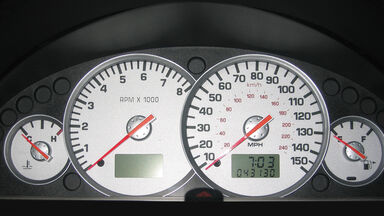A Priori Definition
ä prē-ôrē, ā prī-ôrī
adjective
Proceeding from a known or assumed cause to a necessarily related effect; deductive.
American Heritage
From cause to effect or from a generalization to particular instances; deductive or deductively.
Webster's New World
Derived by or designating the process of reasoning without reference to particular facts or experience.
American Heritage
Based on theory, logic, fixed rules or forms, etc. instead of on experience or experiment.
Webster's New World
Knowable without appeal to particular experience.
American Heritage
Synonyms:
Antonyms:
noun
From what is before. Deductive reasoning or the ascertaining of truth by proceeding from an assumption to its logical conclusion rather than by actual experience or observation. For example, one who walks by a store when its alarm is sounding and sees that its window is broken can deduce that a burglary has occurred without having watched the burglars commit the actual crime.
Webster's New World Law
adverb
(logic) In a way based on theoretical deduction rather than empirical observation.
Wiktionary
Antonyms:
Origin of A Priori
Medieval Latin ā priōrī Latin ā from Latin priōrī ablative of prior former
From American Heritage Dictionary of the English Language, 5th Edition
-
First attested in 1710, from Latin a priori (“former”), literally from the former.
From Wiktionary
-
L, lit., from what precedes < a, ab, from + priori, abl. of prior: see prior
From Webster's New World College Dictionary, 5th Edition





